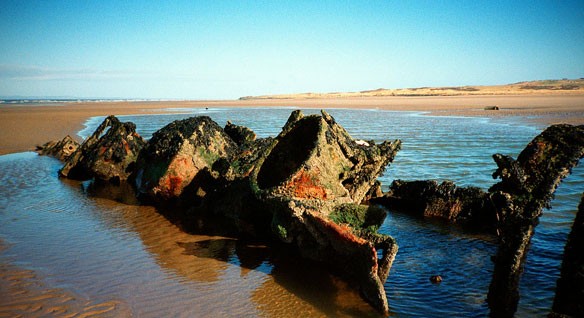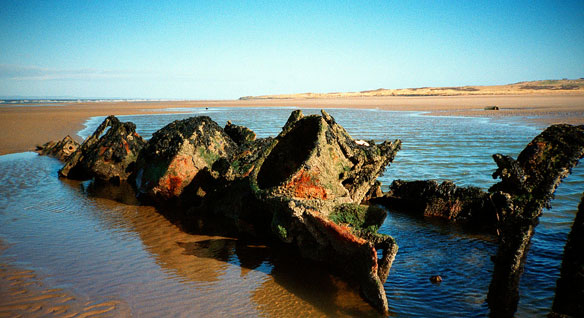
Submarine wreck, Aberlady Bay Nature Reserve, UK. Photo source: ©© Alex Morrice
Excerpts;
When nuclear-powered submarines reach the end of their lives, dismantling them is a complicated and laborious process…
Breaking Bad on the Beach, NASA / Earth Observatory (09-28-2014)
Tens of thousands of ships ply the world’s oceans, bays, and rivers. But what happens when those ships have become too old or too expensive to operate? In most cases, they end up on the shores of Asia…literally.
Chittagong Beach Ship Breaking Yards, Bangladesh, Guardian UK (05-05-2012)
Stretched along 12 miles of what just a decade ago was a pristine sandy beach, ore carriers, container ships, gas tankers, cruise liners and cargo ships of every size and description are being dismantled by hand in 140 similar yards, at Chittagong beach Ship Breaking Yard, Bangladesh, the world’s second largest ship breaking area. Every year more than 250 redundant ships, many from Britain and Europe, come here to be broken up…
The Ship-Breakers, National Geographic (05-2014)
In Bangladesh men desperate for work perform one of the world’s most dangerous jobs…
New EU Rules ‘Fail’ Against Shipbreaking Dangers, IPS News (07-17-2013)
The European Parliament’s Environment Committee voted last in favour of a proposal aiming to put an end to European ships being recklessly scrapped in developing countries…
“Ship yard, Bangladesh”: A Photo by Jana Asenbrennerova, National Geographic Photo Contest 2010









